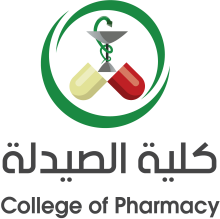The College of Pharmacy at Amman Arab University has a dedicated team committed to providing an innovative and comprehensive education for our students. Our curriculum is designed to equip future pharmacists with the knowledge and skills necessary to excel in a rapidly evolving healthcare landscape. We emphasize both theoretical foundations and practical experiences, ensuring that our graduates are not only knowledgeable but also capable of making a meaningful impact in their communities.
The College obtained the Accreditation Council for Pharmacy Education “ACPE” certificate and continues to aim for higher ranking on national, regional as well as international levels. The College offers a bachelor degree in Pharmacy and a master’s degree in Pharmacovigilance & Regulatory Affairs.
We believe that collaboration is key to success, and we actively engage with industry partners and healthcare professionals to enhance our educational offerings. Our College members are passionate about mentoring students and fostering a supportive learning environment. We invite you to explore our program and discover the exciting opportunities that await you in the field of pharmacy
Dr. Adel Ardakani
Acting Head of Pharmacy Department
About the Bachelor of Pharmacy
It is on one of the university’s new created academic departments; it officially became operational at the beginning of the academic year 2016/2017. It is now a fact that only distinguished teaching staff have been recruited into this department with some state of the art specialties and expertise who are also holders of doctoral degrees from world’s most renowned academic institutions. These exclusive features will inevitably will improve whole educational process; its input, output, and the quality of graduating students.
Students are enrolled in a well-designed curriculum which aims to prepare them to perform strongly and competently in the different areas open to them both in the public and private sectors. In order to encourage students to learn the necessary skills and develop expertise to meet the requirements of effective practice in an increasingly advancing world, the college has invested a great deal of capital in the infrastructure and equipping laboratories with a cutting edge devices.
Vision
Entrepreneurship and distinction in pharmaceutical sciences, academically and professionally, at the local, regional, and international levels.
Mission
Preparing pharmaceutical cadres supported by the knowledge, skills, and ethics of the profession, to meet the needs of the local, regional and global community, by local and international quality criteria.
Pharmacy Major Bachelor’s Program
Program Mission:
Providing distinguished academic programs supported by the knowledge, skills, and ethics of the profession through qualified cadres capable of keeping pace with the local and approved e-learning criteria.
Educational Program Objectives:
- Providing advanced and distinguished education to graduate professionally and research-qualified pharmacists.
- Preparing students with the skills of pharmacists work in line with the labor market and the needs of society.
- Encouraging scientific research, the appropriate atmosphere for conducting it, and developing it.
- Serving public and private civil society institutions, especially those working in the pharmaceutical field.
Educational Program Outcomes:
The expected outcomes of this program are preparing graduates competent in:
- Develop, integrate, and apply knowledge from the foundational sciences (i.e., pharmaceutical, social/behavioral/administrative, health, and clinical sciences) to evaluate the scientific literature, explain drug action, solve therapeutic problems, and advance population health and patient-centered care.
- Provide patient-centered care as the medication expert (collect and interpret evidence, prioritize, formulate assessments and recommendations, foster patient support and empowerment, implement, monitor and adjust plans, and document activities).
- Manage patient healthcare needs using human, financial, technological, and physical resources to optimize the safety and efficacy of medication use systems.
- Design prevention, intervention, and educational strategies for individuals and communities to manage disease and improve health and wellness.
- Describe the way in which population-based care influences patient-centered care and influences the development of practice guidelines and evidence-based best practices.
- Identify problems; explore and prioritize potential strategies; and design, implement, and evaluate a viable solution.
- Educate all audiences by determining the most effective and enduring ways to impart information and assess understanding.
- Assure that patients’ best interests are represented.
- Actively participate and engage as a healthcare team member by demonstrating mutual respect, understanding, and values to meet patient care needs.
- Recognize social determinants of health to diminish disparities and inequities in access to quality care.
- Effectively communicate verbally and nonverbally when interacting with an individual, group, or organization.
- Examine and reflect on personal knowledge, skills, abilities, beliefs, biases, motivation, and emotions that could enhance or limit personal and professional growth.
- Demonstrate responsibility for creating and achieving shared goals, regardless of position.
- Engage in innovative activities by using creative thinking to envision better ways of accomplishing professional goals.
- Exhibit behaviors and values that are consistent with the trust given to the profession by patients, other healthcare providers, and society.
Pharmacovigilance & Regulatory Affairs Major Master’s Program
Program Mission:
Providing qualified pharmacists trained and educated at the hands of distinguished staff, conducting up-to-date research work, and building positive partnerships with community.
Educational Program Objectives:
- Equip pharmacists with knowledge, skills, and tools to build a solid body of regulatory professionals
- Supply the pharmaceutical labour market with high-caliber professional, technical, and scientific knowledge in regulatory affairs and pharmacovigilance, keeping pace with local and international developments in the drug sector.
- Implement global regulatory strategies and product lifecycles
Educational Program Outcomes:
The expected outcomes of this program are preparing graduates competent in:
- Define drug, medical device, and health care submission process requirements. (K1)
- Apply the national healthcare legislation and regulations. (S1)
- Articulate the critical elements in effective communications from the regulatory professional’s perspective (communication and negotiating skills). (S2)
- Evaluate the product development process. (C1)
- Evaluate the international harmonization of regulations and clinical development and their impact on manufacturing, the submission process and drug availability. (C2)
- Explain the roles and responsibilities of a regulatory professional in the industry. (C3)
- Value, build and interpret safety data. (C4)
- Interpret the pharmacovigilance data throughout the product lifecycle. (C5)
- Appraise scientific knowledge and skills in the field of drug development and registration or re-registration and control keeping pace with the continuous changes and various requirements in the field of regulatory affairs and drug vigilance locally and internationally. (C6)
- Apply information technology skills in the use of software applicable to regulatory affairs submissions, document and database management systems, and research. (C7)
- Explore and prioritize potential strategies for identified problems, design, implement, and evaluate a viable solution. (C8)
- Correlate the post-marketing surveillance and pharmacovigilance. (C9).
Program Educational Objectives (PEOs):
- Providing advanced and distinguished education to graduate professionally and research-qualified pharmacists.
- Preparing students with the skills of pharmacists work in line with the labor market and the needs of society.
- Encouraging scientific research, the appropriate atmosphere for conducting it, and developing it.
- Serving public and private civil society institutions, especially those working in the pharmaceutical field.
Students Outcomes (SOs):
- Develop, integrate, and apply knowledge from the foundational sciences (i.e., pharmaceutical, social/behavioral/administrative, health, and clinical sciences) to evaluate the scientific literature, explain drug action, solve therapeutic problems, and advance population health and patient-centered care.
- Provide patient-centered care as the medication expert (collect and interpret evidence, prioritize, formulate assessments and recommendations, foster patient support and empowerment, implement, monitor and adjust plans, and document activities).
- Manage patient healthcare needs using human, financial, technological, and physical resources to optimize the safety and efficacy of medication use systems.
- Design prevention, intervention, and educational strategies for individuals and communities to manage disease and improve health and wellness.
- Describe the way in which population-based care influences patient-centered care and influences the development of practice guidelines and evidence-based best practices.
- Identify problems; explore and prioritize potential strategies; and design, implement, and evaluate a viable solution.
- Educate all audiences by determining the most effective and enduring ways to impart information and assess understanding.
- Assure that patients’ best interests are represented.
- Actively participate and engage as a healthcare team member by demonstrating mutual respect, understanding, and values to meet patient care needs.
- Recognize social determinants of health to diminish disparities and inequities in access to quality care.
- Effectively communicate verbally and nonverbally when interacting with an individual, group, or organization.
- Examine and reflect on personal knowledge, skills, abilities, beliefs, biases, motivation, and emotions that could enhance or limit personal and professional growth.
- Demonstrate responsibility for creating and achieving shared goals, regardless of position.
- Engage in innovative activities by using creative thinking to envision better ways of accomplishing professional goals.
- Exhibit behaviors and values that are consistent with the trust given to the profession by patients, other healthcare providers, and society.
Mapping between PEOs and SOs:
| PEOs | SOs |
| PEO1 | 1,2,3,4,9,11,12,13,14,15 |
| PEO2 | 7,8,9,11,13,14,15 |
| PEO3 | 4,5,6,8,10,15 |
| PEO4 | 1,2,3,4,7,9,10,14,15 |



| Major | Credit Hours | Study Plan |
| Bachelors of Pharmacy | 160 | |
| Master in Pharmacovigilance & Regulatory Affairs | 33 |
| Number | Documentation | Abstract |
1 | Alajlouni, A., Almalahmeh, A., Kiwamoto, R., wesseling, S., Soffers, A. Al-subeihi, A., Vervoort, J., Rietjens, I. (2016). Mode of action based risk assessment of the botanical food-borne alkenylbenzene apiol from parsley using physiologically based kinetic (PBK) modelling and read-across to safrole. Food Chem Toxicol 89: pp.138-50 | Download |
2 | Amer J. Al-Malahmeh, Abdelmajeed Al-Ajlouni, Sebastiaan Wesseling, Ans E.M. F. Soffers, Ala′Al-Subeihi, Reiko Kiwamoto, Jacques Vervoort, Ivonne M.C.M. Rietjens (2016). Physiologically based kinetic modeling of bioactivation of myristicin facilitating risk assessment. Arch Toxicol June 22, pp.1-22. | Download |
3 | Hailat, I.,, Parrish, C., and Helleur, R. (2016). Sterol composition of blue mussels fed algae and effluents diets from finfish culture. J Shellfish Res 35, pp.1-6. | Download |
| 4 | EB Buyukunal, KH Mahmood, MA Bal,2016, Antimicrobial susceptibility of large intestinal Escherichia coli isolates from cattle and sheep abattoir samples., Research Opinions in Animal and Veterinary Sciences. | Download |
| 5 | Abdalmajeed M.Alajlounia, b, Amer J.Al_Malahmeha, bReikoKiwamotob, Sebastiaan Wesselingb, Ans E.M.F.Soffersb, Ala A.A.Al-Subeihic, JacquesVervoortd, Ivonne M.C.M.Rietjensb,2016, Mode of action based risk assessment of the botanical food-borne alkenylbenzene apiol from parsley using physiologically based kinetic (PBK) modelling and read-across from safrole, Food and Chemical Toxicology . | Download |
| 6 | Enas R Mohsin, Khalid H Al-Jaff,2016, SEROLOGICAL DETECTION OF ROTAVIRUS INFECTION IN BOVINE AND HUMAN., Basrah Journal of Veterinary Research. | Download |
| 7 | L Tutunji,2016, Wide Spread use of LC-MS in Bioequivalence Studies, MOJ Bioequivalence & Bioavailability. | Download |
| Number | Documentation | Abstract |
1 | Amer J. Al-Malahmeh1,2 · Abdelmajeed Al-Ajlouni1,2 · Sebastiaan Wesseling1 · Ans E. M. F. Soffers1 · Ala’Al-Subeihi4 · Reiko Kiwamoto1 · Jacques Vervoort3 · Ivonne M. C. M. Rietjens1,2017, Physiologically based kinetic modeling of the bioactivation of myristicin, Archives of toxicology. | Download |
| 2 | L Tutunji,2017, The Interchangeability of Innovator and Generic Drugs, MOJ Bioequivalence & Bioavailability. | Download |
| 3 | Lara Tutunji,2017, Tissue Engineering Applications in Medicine, Research in Medical & Engineering Sciences. | Download |
| Number | Documentation | Abstract |
1 | Ala Yahya Sirhan, 2018, Optimization and Validation of an HPLC-UV Method for Determination of Benzoic Acid and Sorbic Acid in Yogurt and Dried-Yogurt Products Using a Design of Experiment, Indonesian Journal of Chemistry. | Download |
| Number | Documentation | Abstract |
1 | L Tutunji,2019, Evaluation of Drug Release and Performance Parameters for Metformin Extended Release Tablets, J Pha Pharma Re: JPPR. | Download |
| 2 | Ala Yahya Sirhan, Richard CS Wong, Lukman Bola Abdulra’uf, Joumana Abd Aljabar, Ahmad Mostafa, Ahmad Talhouni, 2019, Quantitative Determination of ethanol in “Alcohol-Free” beverages, energy drinks and fruit juices by Gas Chromatography, Asian Journal of Agriculture and Biology. | Download |







